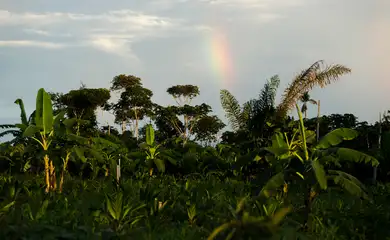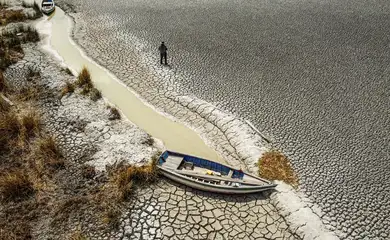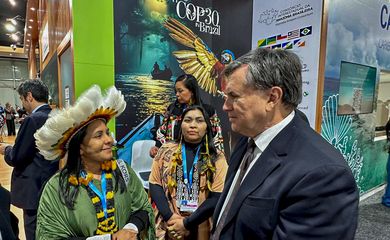Climate, AI to be part of Brazil’s agenda at the helm of BRICS

Brazil is taking over the presidency of BRICS on January 1 and will be hosting the group’s summit meeting for the fourth time. The Brazilian government sees this as an opportunity to seek understanding among the ten member nations in order to build a more sustainable world.

In an interview with Agência Brasil, Ambassador Eduardo Saboia, the 2025 sherpa of BRICS, said that the group is of paramount importance on the global stage, given the magnitude of the total population of its member countries (over 40 percent of the world’s population) and their economies—37 percent of the world’s GDP by purchasing power.
“If you want to build a better world, a sustainable world, BRICS has to be part of that construction. And it is important that there is an understanding among these countries, because it helps you reach a broader understanding [with other countries],” Ambassador Saboia declared.
In addition to topics already being discussed among BRICS members—like the possibility of using local currencies in trade between countries and the reform of global governance—Brazil will take advantage of its position at the head of the group to seek understanding on issues such as climate change, sustainable development with poverty reduction, and governance on artificial intelligence.
The climate issue is of particular interest because Brazil will also be hosting the 30th United Nations Climate Change Conference (COP30) in Belém, Pará state, this year.
“How can we take advantage of the BRICS presidency to build an understanding that can help make COP30 a success? The BRICS countries play a central role when it comes to energy, which is the main source of greenhouse gas emissions,” he noted.
Governance for artificial intelligence is also a relevant issue, since, the ambassador pointed out, this is a “disruptive” type of technology. “There is no governance on artificial intelligence, but this has been brought under discussion. Maybe at BRICS, during the Brazilian presidency, we can move forward with the idea of getting these countries to agree on what the governance of artificial intelligence should look like.”
BRICS is a building and stabilizing force, the ambassador argued. “It’s stabilizing because if you have these countries—which are different and have different political systems, each with their own challenges, understanding each other—meeting every year, that’s good for everyone, because it’s where solutions for the people come from.”
Expansion
The first summit assembly took place in 2009, with just Brazil, Russia, India, and China (BRIC, as it was originally named). In 2011, South Africa joined the group, and the acronym became BRICS.
In 2023, at the Johannesburg summit, in South Africa, BRICS invited Argentina, Iran, Saudi Arabia, Egypt, Ethiopia, and the United Arab Emirates to join the group in January 2024. Argentina decided not to join, while the others attended this year’s summit in Kazan, Russia.
Ambassador Saboia said that the expansion of the bloc comes as a result of the group’s success. “The BRICS today arouses great interest and it must be representative of the countries of the global south, the emerging countries.”
The expansion of the group, he said, has Brazil’s support and is in line with the country’s position on the reform of global governance. “If we advocate the reform and expansion of the [UN] Security Council, it makes sense for us to expand BRICS. Now this platform [BRICS] has its priorities, it has an agreement, so the member countries have embraced these achievements. One of the priorities is to ensure that this incorporation takes place as smoothly and effectively as possible.”
At the Kazan summit, BRICS also announced a new type of membership—associated countries—and it was decided that 13 nations would be invited: Cuba, Bolivia, Turkey, Nigeria, Indonesia, Algeria, Belarus, Malaysia, Uzbekistan, Kazakhstan, Thailand, Vietnam, and Uganda.
Ambassador Saboia says the announcement on the accession of partner countries will be made in the coming weeks. “One of the priorities of our presidency is to make these countries feel welcome in the BRICS family. It’s important that we work to get them involved. They will take part in the meetings of foreign ministers and they are also expected to take part in the summit [in 2025].”





